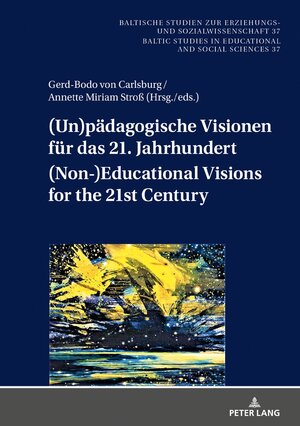
(Un)pädagogische Visionen für das 21. Jahrhundert / (Non-)Educational Visions for the 21st Century
Geistes- und sozialwissenschaftliche Entwürfe nach dem Ende der ‹großen› Menschheitsgeschichte / Humanities and Social Science Concepts after the End of the ‹Great› History of Mankind
herausgegeben von Gerd-Bodo von Carlsburg und Annette StrossSind Visionen Phantasievorstellungen, Einbildungen oder gar Trugbilder vergangener Zeiten? Oder ist Visionen, retro- wie auch prospektiv gesehen, ein Potential zu eigen, das Geistes- und Sozialwissenschaftler. innen in der Gegenwart nutzen können und sollten?
In diesem Band zeigen Wissenschaftlerinnen und Wissenschaftler aus Deutschland, Litauen, Estland, Polen, Schweden und China, dass die aktuellen Debatten in den Geistes- und Sozialwissenschaften zu Themen wie Ökologie, interreligiöser Dialog, Identitätsbildung, Gesundheitserziehung, digitale Partizipation, (Welt-)Frieden, Sakrotourismus, Kulturmanagement durch die Einbeziehung visionärer Perspektiven aus unterschiedlichen Disziplinen neu belebt werden können.
Are visions imaginations of fantasies and illusions or even hallucinations of past times? Or has a vision, in retrospect and in preview, a potential that humanists and social scientists can and should use in the present?
In this volume scientists from Germany, Lithuania, Estonia, Poland, Sweden and China show that current debates in the humanities and social sciences on topics such as ecology, interreligious dialogue, identity learning, health education, digital participation, (world) peace, sacrotourism, cultural management can be revitalized by including visionary perspectives from different scientific disciplines.





